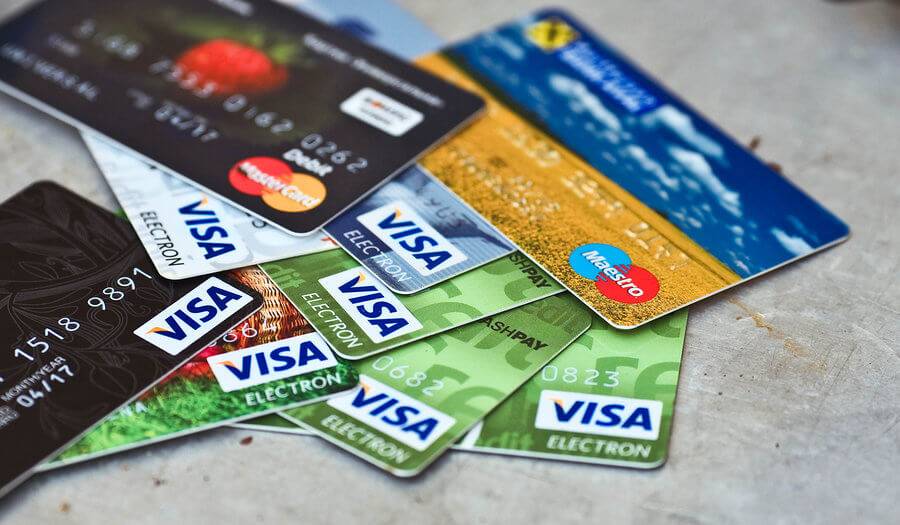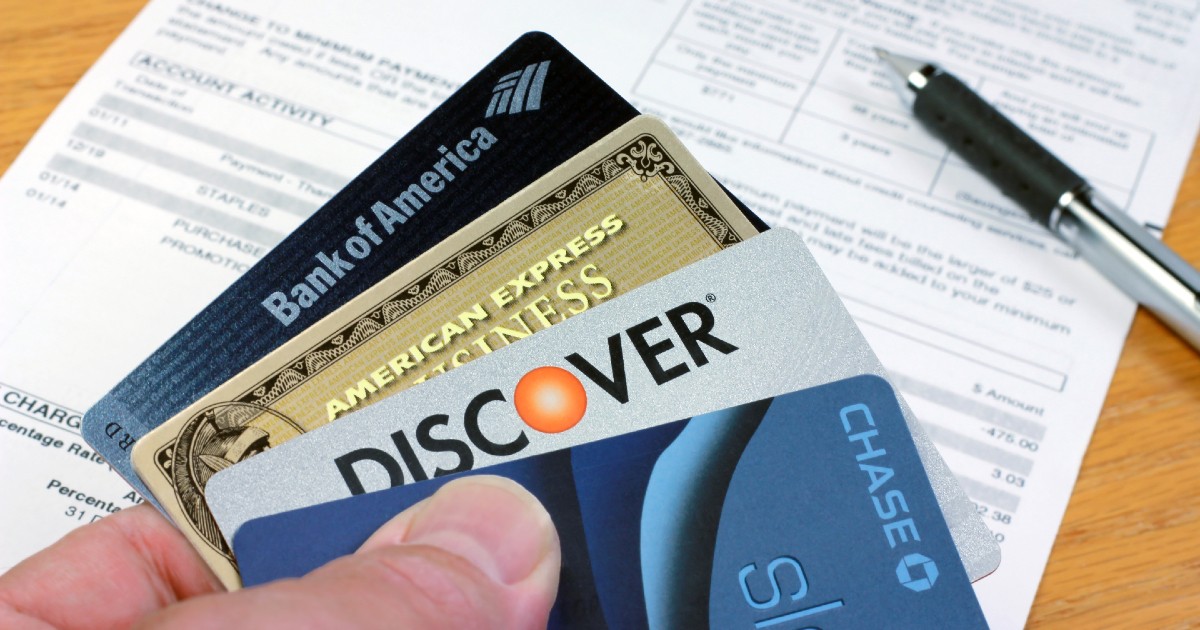Advertisement

Kelly Walker Aug 18, 2024
How to Maximize Cash Back Rewards with USAA Bank Credit Cards?
49427

Rick Novak Jan 19, 2025
Cash-in on These Banks with Ridiculously High Dividends
24804

Rick Novak Oct 01, 2024
Pros and Cons of Secured Personal Loans
79015

Kelly Walker Oct 01, 2024
Weighing Benefits of Joint and Separate Tax Filing
15995
Advertisement
Credit Cards: How Many Should You Have
Jan 18, 2025 By Kelly Walker
Is it advisable to maintain many credit cards? That's probably the case if you've ever run up a huge credit card bill and felt helpless in the face of your spending habits. Indeed, carrying a large balance on many cards might make paying off your debt nearly impossible.
There is no hard and fast rule for the optimal number of credit cards anybody should carry, and in some cases, it may be beneficial to take more than one. If you manage your credit cards poorly, having many cards might lower your score.
Despite this, People continue to use their credit cards. According to recent research by Experian, the average American has between four and five credit cards.
Can You Benefit from Having Many Credit Cards?

When utilizing rewards credit cards, having access to multiple credit cards can increase your earning potential and make it easier to make large purchases. One of your main concerns about using many credit cards is how it would affect your credit score.
Although this is a widespread thought, having many credit cards can enhance your score by allowing you to manage your credit usage ratio better.
The credit usage ratio is the percentage of available credit used; if you have one credit card with a $2,000 limit and charge an average of $1,800 monthly, your ratio is 90%. A high credit usage percentage hurts credit ratings.
How Many Credit Cards Are Appropriate for You to Have?
Given that each person's circumstances are unique, there is no single answer to this issue. There's good reason to carry at least one credit card, if only for its ease, safety, and convenience. Using several credit cards is justifiable if you either need the extra lines of credit to cover your monthly discretionary budget or want to use your ordinary shopping to earn benefits like cash back, points, or airline miles.
The Risks of Overuse of Credit Cards

If you can't afford to pay your bills, you don't need the credit, and you have no plans to utilize the card; even possessing two of them is one too many. If you're looking to raise your credit score, acquiring a new credit card will reduce the percentage of your available credit that you're using.
But opening many new accounts is not a good idea. Customers who sign up for many credit cards to amass bonuses, use those cards to make the minimum required purchase, and then cancel their accounts to keep the rewards have prompted many card issuers to implement regulations to prevent this trend.
Chase, for one, has a law known as "5/24," which means you can't be authorized for a credit card if you've applied for more than five in the previous 24 months.
Possible Effects on Your Credit Rating
Having many credit cards might make you seem dangerous to lenders, affecting your credit score. Even if you've paid off all your credit cards, having many open credit accounts might make you appear like a risk to a new lender.
Hence, while there is no hard and fast rule about too many credit cards, you should only apply for and carry the cards you need and can justify using them based on your credit history, income, and goals for the cards' rewards programs.
Can You Use Two of the Same Credit Card?
If you fulfill their requirements, many credit card companies will grant you approval for another one of their credit cards. Also, if you have a good credit history and have always used your current credit card responsibly, you may easily get accepted for a new credit card.
Refrain from assuming that you'll be granted the same conditions as your present credit card if you apply for a new one. The credit card company will decide whether to provide a card based on your current income and credit rating, which may have changed since you initially applied.
The Conclusion
Having more than one credit card may be useful when used properly. You need to be aware of the perks of each credit card, your credit limit for each account, and your payment due dates to ensure that having many credit card accounts helps you rather than hurts you.
To get the most out of your credit cards, use them wisely, keep your balances low, and pay them off in full as quickly as possible every month. When applying for a new credit card, it's a good idea to shop around and choose one that best suits your requirements and credit history.

Rick Novak Nov 30, 2024
What is Form 2441: A Definition of Child and Dependent Care Expenses
90336

Rick Novak Nov 06, 2024
The Impact of Inflation on Bonds and Other Fixed-Income Assets
95356

Rick Novak Aug 18, 2024
How to Navigate the Market with Odd Lots?
73434

Kelly Walker Nov 06, 2024
Delta SkyMiles Platinum Business Credit Card Review 2023
98895

Kelly Walker Sep 29, 2024
What Is the Minimum Capital Adequacy Ratio Under Basel III?
65224

Kelly Walker Dec 03, 2024
What Is Robo-Advisor Tax-Loss Harvesting?
83302

Rick Novak Sep 30, 2024
Benefits of Claiming Itemized Deductions on Schedule A Form 1040 or 1040-SR
21446

Kelly Walker Dec 23, 2024
Discover Credit Cards: Advantages and Disadvantages
17524